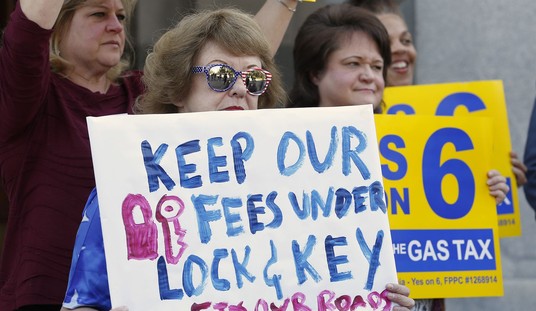The headline of a recent PJM column asked: “Why can’t cops enforce immigration law?”
The author, writing under the pseudonym “Jack Dunphy,” serves as an officer with the Los Angeles Police Department. The LAPD prohibits officers from initiating contact with individuals with the sole intent of determining whether they are in the country illegally. The policy is called Special Order 40. Dunphy wants the policy changed.
In Los Angeles, Dunphy writes, “we will soon learn the results of a petition drive aimed at placing Jamiel’s Law on ballots for the city’s May 2009 municipal election. The proposed law would give Los Angeles Police Department officers a more active role in identifying and apprehending illegal alien street gang members.”
“Jamiel” is 17-year-old Los Angeles resident Jamiel Shaw II, who was shot and killed in March, allegedly by an illegal immigrant from Mexico and reputed gang member.
Initiative proponents failed to gather enough signatures, so the measure won’t be on the May 2009 ballot.
In any case, the question was asked — “Why can’t cops enforce immigration law?” — and I’m delighted to answer it. What I have to say won’t go over well with those who want simple solutions to difficult problems. And, as a Mexican-American, some will see an ethnic bias. One reader accused me of “supporting the Mexican invasion because you’re Mexican.” Another insisted that I wanted a porous border because “you want to bring in your relatives.”
These are cute sound bites, albeit a tad racist since I doubt these readers would have said the same things to a white male columnist with identical views. The comments are also off the mark. I’ve written columns that support deportations, immigration raids, and border enforcement. I’ve opposed unconditional amnesty and the sense of entitlement that illegal immigrants seem to have picked up from their American hosts.Yet speaking of relatives, I do have someone in my bloodline who detests the idea of police officers enforcing immigration laws and thinks it does more harm than good: my father, a retired cop who was on the job for 37 years.
My father’s view — and my own, along with that of countless other law enforcement officers to which I’ve spoken over the years — is that letting local cops enforce immigration law leads to racial profiling, depletes resources, destroys the trust between cops and immigrant communities, and makes policing more difficult by making victims and witnesses fearful to cooperate with those sworn to protect and serve.
Besides, all badges aren’t interchangeable. Local police officers have one standard for searches and seizures: probable cause. Federal immigration agents have a lesser standard: reasonable suspicion. So when local cops impersonate federal agents, which standard applies? Until we decide, we’ll see one disastrous situation after another.
I witnessed a disaster in the desert while working for the Arizona Republic as a reporter and metro columnist. In July 1997, police officers in the Phoenix suburb of Chandler, AZ, paired up with Border Patrol agents to round up illegal immigrants. The operation resulted in the apprehension and deportation of more than 400 illegal immigrants. But, the net ensnared anyone who looked Hispanic – i.e. , brown skin, Spanish accents. There was a state investigation into the roundup, and — during that inquiry — one Chandler police officer said that the tell-tale sign for him was a “smell’ common to the undocumented. Scores of U.S.-born Hispanics — including, ironically, some with Arizona roots going back several generations — were harassed, detained, and asked to produce birth certificates or citizenship papers. This is not the sort of thing that should happen in a country that puts a premium on freedom.
My mentioned my dad. When it comes to law enforcement, he’s a bit of snob. It runs in the family. He has seen gung-ho rookies come and go, and he thinks cops who want to opine on policing should follow a simple rule: “If you haven’t put in 20 years, shut the hell up before you say something stupid!”
I don’t know how long “Jack Dunphy” has been in uniform. But, if I had to guess, I’d say that his 20th anniversary is still ahead of him.
Update: A response from Jack Dunphy:
First of all, Mr. Navarette has erected and attacked a straw man, for neither in the Pajamas Media column to which he responded nor in any of my National Review Online columns on the subject of illegal immigration (here, here, and here) have I advocated for the notion that local police officers should conduct the type of mass roundup he describes in his piece. Rather, I simply argue that once an illegal immigrant has, through some misdeed beyond unlawful entry into the country, found himself in the clutches of local police officers, it seems entirely reasonable that he should be deported upon completion of whatever sentence he might serve on the local charge. Had such a system been in place and consistently applied in Los Angeles last year, Pedro Espinoza would have been deported to Mexico upon completion of his county jail sentence. Instead, he was set free to roam the streets of Los Angeles where, the day after his release, he allegedly shot and killed Jamiel Shaw.
Second, either the United States is going to continue being a nation of laws or it isn’t. Respect for the law is only diminished when local police officers are asked to ignore and even endorse violations of federal law for the sake of some arguable economic or political benefit.
Finally, Mr. Navarette seeks to buttress his argument by guessing — wrongly — that I am one of the “gung-ho rookies” so derided by his father, a retired police officer. I will grant that I’m not as tenured as his father, who served for 37 years. I prefer to keep descriptions of my experience on the vague side so as to preserve the secrecy afforded by my pseudonym, but I can assure Mr. Navarette — and his father — that my twentieth anniversary as a cop is well behind me.









Join the conversation as a VIP Member